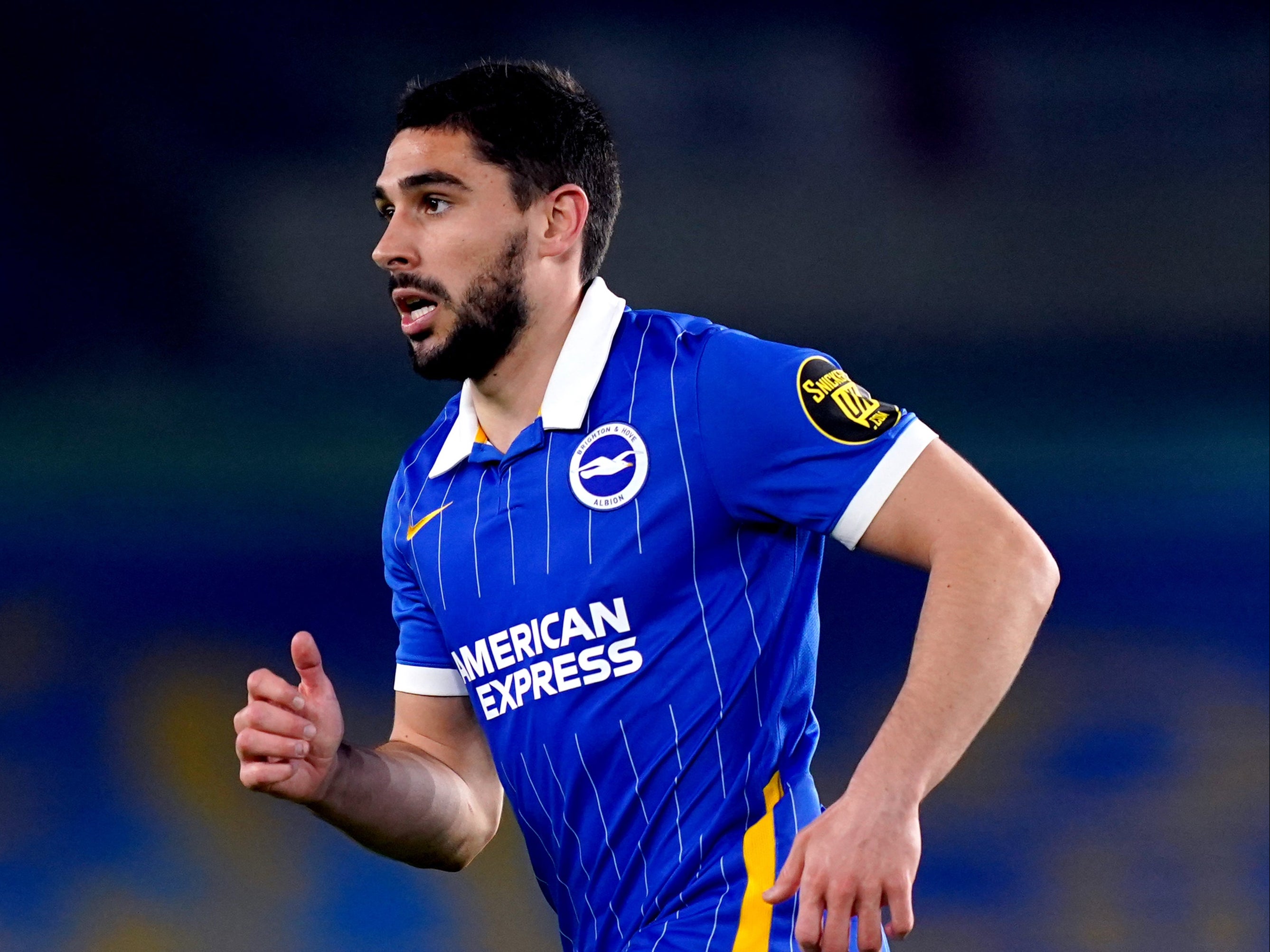Neal Maupay: Premier League’s online abuse reporting system leads to conviction
Racist abuse of current and former players has been prevalent in recent years.

Your support helps us to tell the story
From reproductive rights to climate change to Big Tech, The Independent is on the ground when the story is developing. Whether it's investigating the financials of Elon Musk's pro-Trump PAC or producing our latest documentary, 'The A Word', which shines a light on the American women fighting for reproductive rights, we know how important it is to parse out the facts from the messaging.
At such a critical moment in US history, we need reporters on the ground. Your donation allows us to keep sending journalists to speak to both sides of the story.
The Independent is trusted by Americans across the entire political spectrum. And unlike many other quality news outlets, we choose not to lock Americans out of our reporting and analysis with paywalls. We believe quality journalism should be available to everyone, paid for by those who can afford it.
Your support makes all the difference.The Premier League’s online abuse system has led to a man in Singapore being convicted of sending online abuse to Brighton forward Neal Maupay.
Here, we look at the background to the case.
Why was the online abuse system launched?
Racist abuse of current and former professionals has been prevalent in recent years, with former Arsenal and England forward Ian Wright sharing some of the comments aimed at him earlier this year. Wright also expressed his frustration that the “horrific” abuse he received on social media from a teenager from Tralee, County Kerry went unpunished. Patrick O’Brien, 18, pleaded guilty to harassing Wright on May 11, 2020, and sending a message by phone that was grossly offensive, obscene and menacing. At a sentencing hearing in February, Judge David Waters said he “didn’t see anything to be gained” by imposing a criminal conviction, and handed O’Brien probation.
How did the Premier League respond?
In June 2020, the Premier League launched a new reporting system to allow abusive direct messages to be reviewed and reported to the social media platform concerned, with legal action to follow where appropriate. The organisation’s chief executive Richard Masters said: “There are too many instances of footballers and their families receiving appalling discriminatory messages; nobody should have to deal with this.”
How does the system work?
Players, managers and coaches – or their family members – can report when they have been the victims of serious online discrimination. The league will then review each case. Cases will be reported to the relevant social media company while the league will work with the police, Crown Prosecution Service and other relevant authorities at home and abroad to take legal action if necessary.
Has the reporting system succeeded?
In Maupay’s case, it has. After the 24-year-old French forward received threatening and abusive messages via Instagram, the Premier League’s legal team undertook an investigation to identify and locate the offender. They worked with Brighton and local authorities in Singapore to pursue legal action and Derek Ng De Ren was subsequently convicted of crimes relating to harassment. Mr Ng will be sentenced on 7 July.
What has been the reaction?
Maupay welcomed the news of the conviction, saying: “The vile and toxic abuse of which I was on the receiving end is a daily occurrence for many professional athletes and public figures, and I hope this goes some way to showing those online trolls that it is totally unacceptable and that the authorities are prepared to take the necessary action.”
What else can be done?
The Premier League continues to challenge social media companies to improve their proactive interventions to prevent online abuse on their platforms. In April 2021, the Premier League and all 20 clubs joined other football authorities for a social media boycott in response to the ongoing abuse received online by players and many others connected to football.